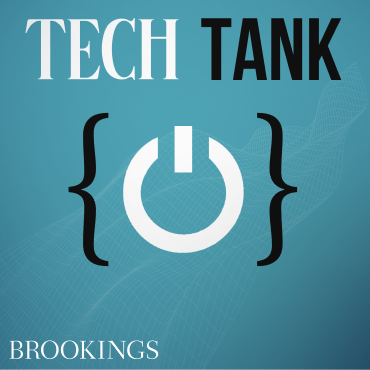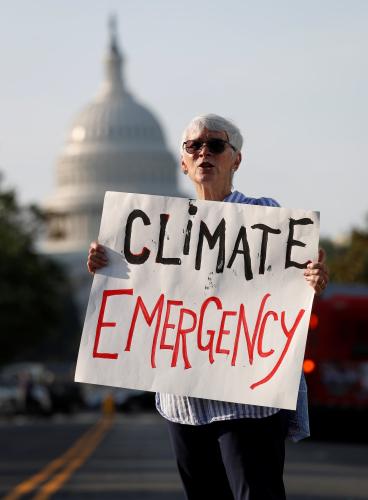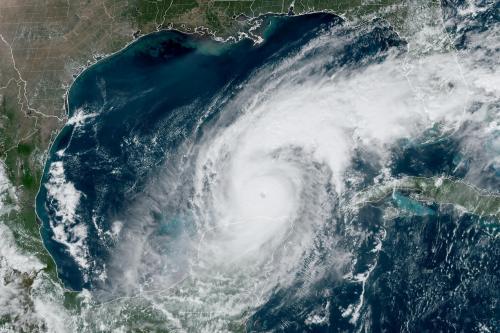TechTank, a biweekly podcast from the Center for Technology Innovation at Brookings, explores today’s most consequential technology issues. Moderators Nicol Turner Lee and Darrell West speak with experts and policymakers to share data, ideas, and policy solutions that address the challenges of our digital world.
Technology plays a crucial role in mitigating climate change. Monitoring equipment like digital sensors and QR tracking codes enables authorities to track disposable containers and ensure compliance with regulations regarding harmful hydro-fluorocarbons. However, a recent federal court decision challenging agencies’ use of such technology could hinder environmental protection efforts. In this episode, co-host Darrell West explores the ramifications of judicial constraints on executive agencies. Joining the conversation is Barry Rabe, a professor of political science and public policy at the University of Michigan and a nonresident senior fellow in Governance Studies at the Brookings Institution. Rabe is the author of “Court Limits Technology Use in Climate Protection Case.” Together, they discuss what the recent court decisions mean for new climate technologies, historical precedents on checks and balances, and the U.S. position as a leader in global trade and clean energy.
Listen to the episode and more from the TechTank podcast on Apple, Spotify, or Acast.
The Brookings Institution is committed to quality, independence, and impact.
We are supported by a diverse array of funders. In line with our values and policies, each Brookings publication represents the sole views of its author(s).











Commentary
PodcastWill courts allow technology to mitigate climate change? | The TechTank Podcast
Listen on
August 14, 2023